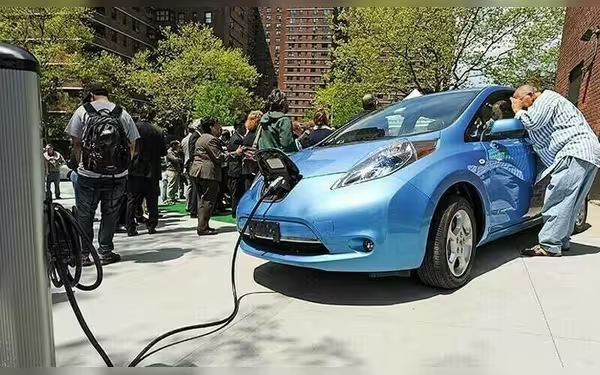Saturday, November 16, 2024 07:44 PM
Pakistan's Electric Vehicle Policy Sparks Local Assembly Concerns
- NEVP may favor imports over local assembly.
- Local assemblers fear stifled innovation.
- Balancing foreign investment and local support is crucial.
 Image Credits: dawn.com
Image Credits: dawn.comPakistan's NEVP raises concerns over prioritizing imports, risking local assembly and innovation in the electric vehicle sector.
KARACHI: The automotive industry in Pakistan is on the brink of a significant transformation, as the government introduces the draft of the National Electric Vehicle Policy (NEVP) for the years 2025-30. This policy is designed to shift the country’s reliance on fossil fuels towards greener alternatives, particularly electric vehicles (EVs). The NEVP includes substantial tax breaks for imports, which has raised eyebrows among local market players and assemblers.
Many stakeholders in the automotive sector are concerned that the NEVP has been crafted primarily to benefit a global electric vehicle giant that is looking to establish a foothold in Pakistan. The fear is that this policy may prioritize imported EVs over the local assembly of vehicles, which is set to commence by 2026. Local assemblers argue that while the introduction of electric vehicles is essential for environmental sustainability, the current approach could undermine their efforts to develop a robust local manufacturing base.
As the world moves towards greener technologies, Pakistan's shift to electric vehicles is not just a trend but a necessity. The NEVP aims to reduce the country’s carbon footprint and promote sustainable transportation. However, the concern remains that if the policy favors imports too heavily, it could stifle local innovation and investment in the EV sector.
In a country where the automotive industry has the potential to create jobs and stimulate economic growth, it is crucial to strike a balance between encouraging foreign investment and supporting local businesses. The government must ensure that the NEVP not only attracts global players but also nurtures local assemblers who are eager to contribute to the EV market.
While the NEVP presents an exciting opportunity for Pakistan to embrace electric vehicles, it is imperative that the policy is implemented in a way that supports local assembly and manufacturing. By doing so, Pakistan can create a sustainable automotive industry that benefits both the environment and the economy. The future of electric vehicles in Pakistan should not just be about imports; it should also be about empowering local talent and resources to thrive in this new era of transportation.













